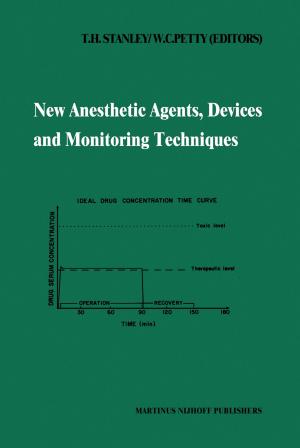The Different Faces of Autonomy
Patient Autonomy in Ethical Theory and Hospital Practice
Nonfiction, Health & Well Being, Medical, Reference, Ethics, Religion & Spirituality, Philosophy, Ethics & Moral Philosophy| Author: | M. Schermer | ISBN: | 9789401599726 |
| Publisher: | Springer Netherlands | Publication: | April 17, 2013 |
| Imprint: | Springer | Language: | English |
| Author: | M. Schermer |
| ISBN: | 9789401599726 |
| Publisher: | Springer Netherlands |
| Publication: | April 17, 2013 |
| Imprint: | Springer |
| Language: | English |
Patient autonomy is a much discussed and debated subject in medical ethics, as well as in healthcare practice, medical law, and healthcare policy. This book provides a detailed and nuanced analysis of both the concept of autonomy and the principle of respect for autonomy, in an accessible style. The unique feature of this book is that it combines empirical research into hospital practice with thorough philosophical analyses. As such, it is an example of a new movement in applied ethics, that of 'empirical ethics'.
The key themes are informed consent and medical decision making, personal well-being, competence, paternalism and decision making for incompetent patients. Much attention is also devoted to autonomy in non-decision making situations - patient control over small everyday aspects of care, authenticity and existential aspects of illness, autonomy and the 'ethics of care', and the relationship between autonomy and trust in the physician-patient relationship.
This book will be of interest to those working or studying in the field of medical ethics and applied ethics but also to healthcare professionals and health policy makers.
Patient autonomy is a much discussed and debated subject in medical ethics, as well as in healthcare practice, medical law, and healthcare policy. This book provides a detailed and nuanced analysis of both the concept of autonomy and the principle of respect for autonomy, in an accessible style. The unique feature of this book is that it combines empirical research into hospital practice with thorough philosophical analyses. As such, it is an example of a new movement in applied ethics, that of 'empirical ethics'.
The key themes are informed consent and medical decision making, personal well-being, competence, paternalism and decision making for incompetent patients. Much attention is also devoted to autonomy in non-decision making situations - patient control over small everyday aspects of care, authenticity and existential aspects of illness, autonomy and the 'ethics of care', and the relationship between autonomy and trust in the physician-patient relationship.
This book will be of interest to those working or studying in the field of medical ethics and applied ethics but also to healthcare professionals and health policy makers.















